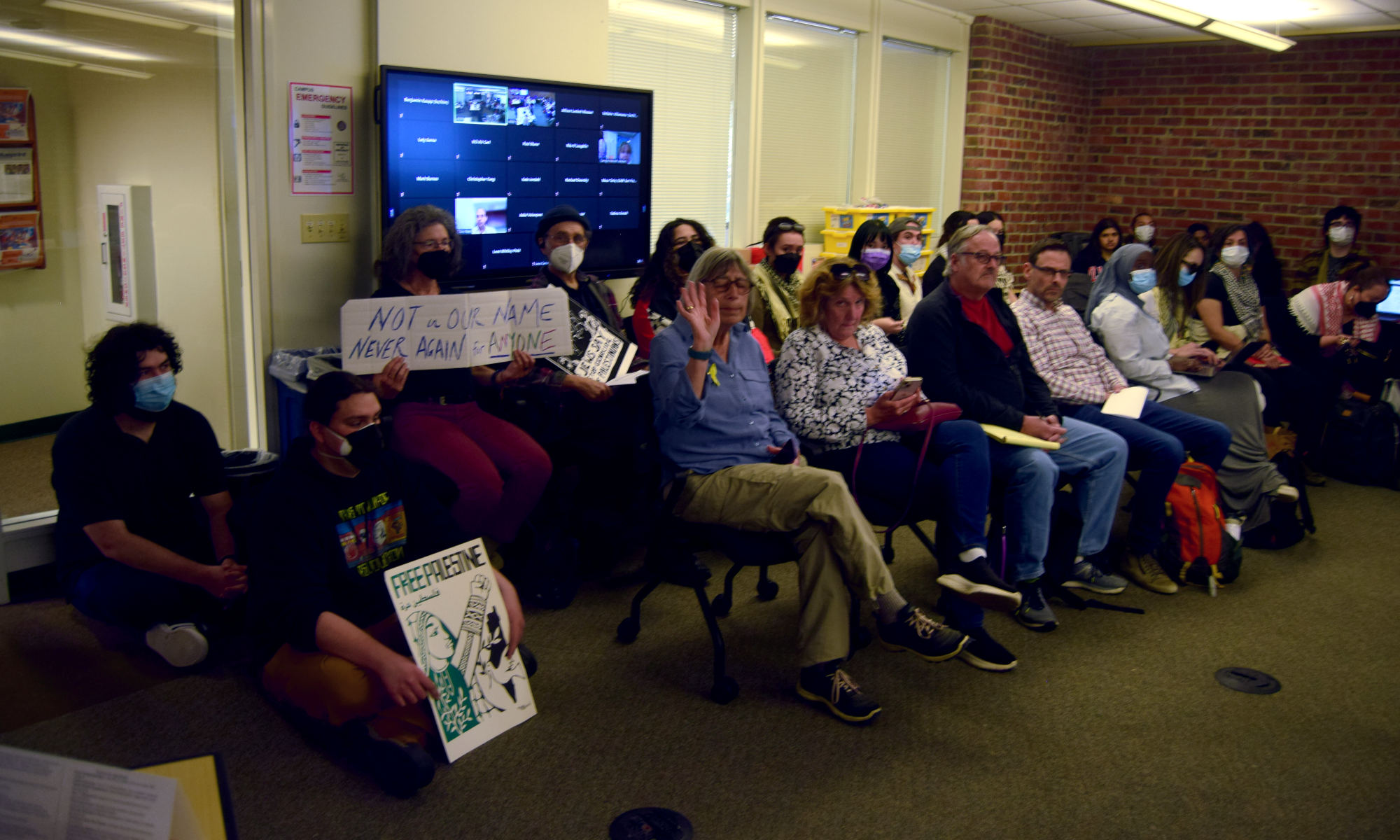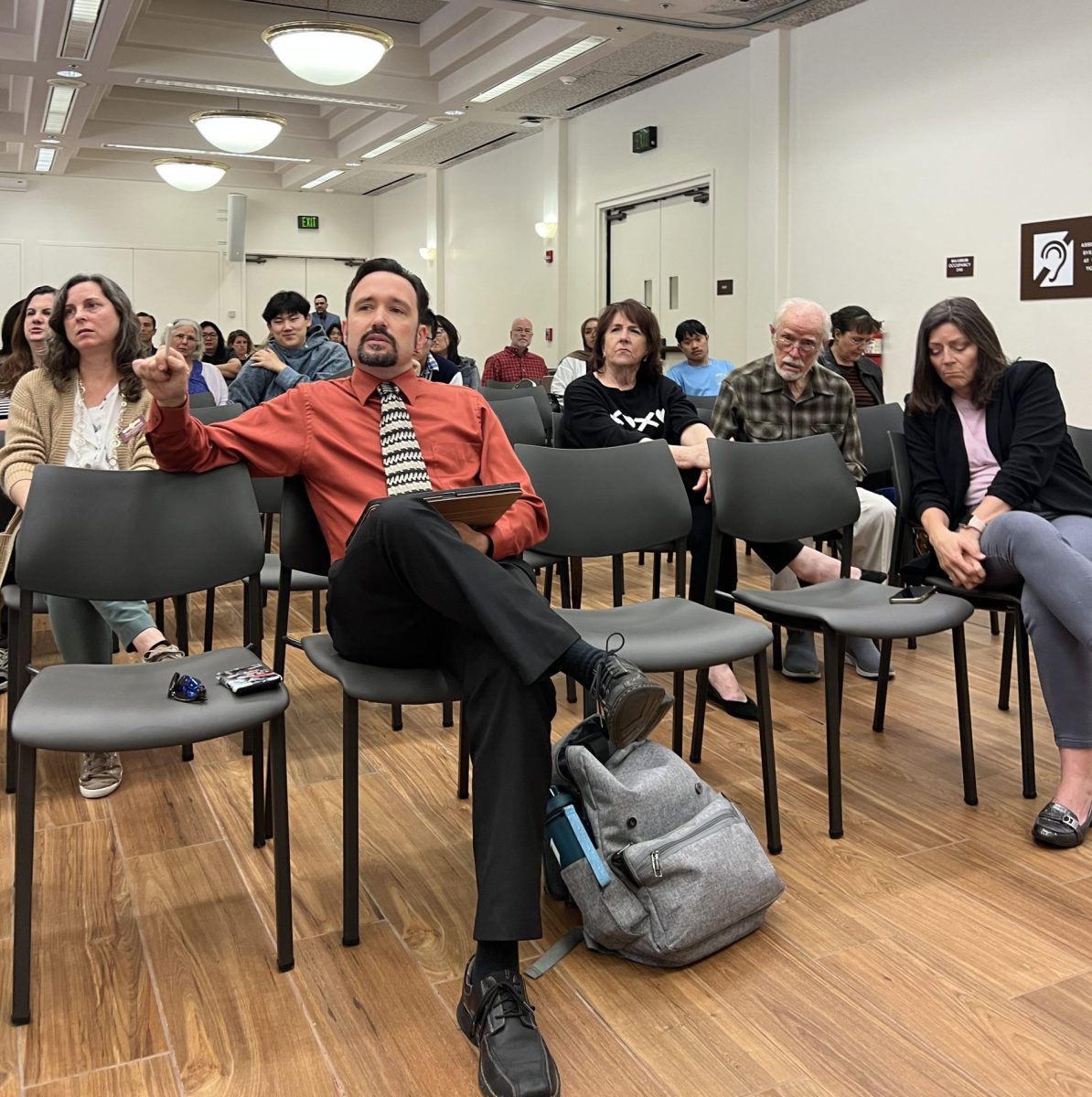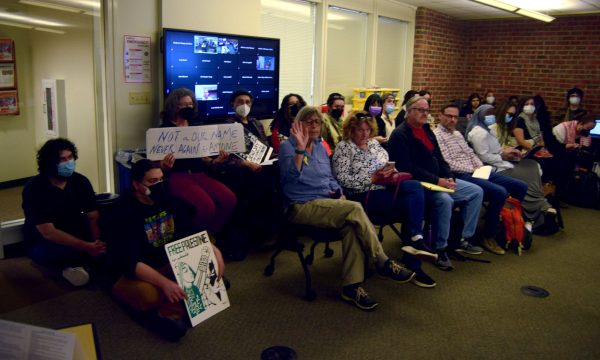‘Bones and All’ gives a grim revelation about cannibalistic tendencies
March 26, 2023
*Content warning. The following contains information about cannibalism that may be unnerving to some.*
Luca Guadagnino’s latest film “Bones and All” romanticizes cannibalism in a way not seen before in mainstream media. Its acclamation by both the public and film critics serves as a grim revelation of our own human tendencies. I do not recommend it for the weak-stomached like me.
The movie follows a young adult’s journey as she comes to terms with her insatiable cravings for human flesh and learns to accept and embrace her identity as an “eater” with the help of her cannibal friend and love interest, Lee.
As deviant as this movie may seem, its popularity represents a larger issue within our society—cannibalism is ingrained in us and normalized to an alarming extent.
Did you know, for instance, that people eat placenta? Yes, placenta, the tissue that forms around the fetus during pregnancy and connects the pregnant person’s uterus to the umbilical cord.
This activity is common enough that it has its own name, placentophagy, and is subject of numerous studies by the scientific community, including a 2018 U.S. study, which showed that over one-third of the participants in community births ate their placenta. The Royal Women’s Hospital of Australia has even created guides on how to safely consume it after birth.
This practice seems to be widely accepted into our society, just like other forms of cannibalism, like auto-cannibalism. Onychophagia, also known as nail-biting, is one of them: it is estimated that between 20% to 30% of the general population have this disorder. Dermatodaxia, or skin-eating, is another disorder that is usually accompanied by other body-focused repetitive behaviors including nail-biting.
Many nail-biters, like myself, live with this disorder for our entire lives, unable to stop because there is no clear remedy. Although nail-biters have tried all kinds of “treatments” from using garlic-flavored nail polish, paying for expensive acrylics, to simply trying to quit, nothing seems to be effective.
Less common, but equally bizarre are behaviors that encompass the ingestion of our own body fluids.
This practice is not uncommon in certain cultures, such as the religious sect from Bangladesh and the neighboring region known as Vaishnava Baul, which is reported to “ingest a woman’s (menstrual) flow in order to be nourished.”
In Western society, this has also become somewhat of an accepted practice.
In a 2017 video, somatic psychotherapist Maanee Chrystal said the practice of drinking your own blood is a way of “communicating to the body that we want to keep our blood (and the nutrients in it) inside.”
More alarmingly, though, are the reports of people ingesting other people’s body fluids such as celebrities Megan Fox and Machine Gun Kelly admitting to drinking each other’s blood, and a recent BBC report of ordinary people engaging in a similar activity.
Drinking unpurified blood may seem excessive and even gross, which is why some people have taken it into their own hands to make tastier recipes– blood sausages.
But if you’re not a fan of that or you’d like to make a more sizable meal, you can try making leg tacos and share them with your friends!
Or, even better, you can just literally eat your friends (consensually).
Cannibalism has been embedded into our daily lives, with some people even engaging in it consensually and eagerly, while others turn a blind eye to this concerning and dreadful behavior.
“Bones and All” director, Luca Guadagnino, while undeniably skillful in his craft, is also incredibly problematic. His movies tend to glorify and romanticize socially unacceptable behaviors of pedophilia and cannibalism.
One of his most critically acclaimed movies, and the one that catapulted him to international recognition, “Call Me by Your Name,” tells the love story between a 24-year-old archeology student and an underage teenager. Oh, the romance!
In “Bones and All,” Guadagnino was able to create an eerie, yet alluring atmosphere throughout the whole movie that makes the audience want to look away and keep watching at the same time.
One may think that this is the effect the director intends to create, until you realize his troublesome history with known abusers and cannibals.
The “Call Me By Your Name” actor Armie Hammer not only was accused of sexual assault and cannibalism by his ex-partners, but he also admitted to it. Yet, when given the opportunity to condemn the unacceptable behavior, Guadagnino instead said he’d love to work with him again and proceeded promoting his movie on cannibalism.
The cult-classic movie is one in the making with a one-of-a-kind romance-drama genre, gaining praise by both regular movie-watchers and cinephiles.
The cycle of normalization continues; perhaps cannibalism is just “one of those things,” after all.
































